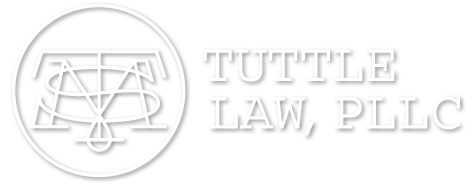A misapprehension exists that directors of North Carolina nonprofit corporations are immune from liability for their decisions, actions and inactions as directors. Indeed, a well-respected and successful businessman and chair of the board of a well-respected nonprofit corporation recently told me that he had been advised by counsel that he need not be concerned with liability issues. Is that advice correct? Are directors free to engage or not engage with their organizations and fellow board members without fear of liability?
A North Carolina statute does afford directors of nonprofit corporations immunity from civil liability for money damages. But it does so only in limited circumstances and it does not alleviate the directors’ obligation to adhere to the prescribed statutory standards of conduct. Those standards require directors of North Carolina nonprofits to act in good faith, with due care and in a manner reasonably believed to be in the corporation’s – as opposed to the director’s – best interests. Due care is the care that an ordinarily prudent person in a like position would exercise under similar circumstances. It is characterized by attentiveness, diligence, and thoughtfulness and requires informed, active participation.
The immunity statute’s protection of nonprofit directors is unavailable if, among other things, they are compensated for their services, did not act in good faith, acted outside the scope of their official duties, or committed gross negligence or willful or wanton misconduct. Immunity does not exist to the extent there is insurance coverage.
How does one square the directors’ duties with immunity from liability? Contrary to commonly held belief, the immunity statute does not conflate the directors’ duties with the shield from liability, i.e., the director’s duties are not properly understood or described to be the single duty to not be grossly negligent. The standard of conduct exists separate and apart from statutory immunity; the directors’ duties are in no way lessened by the promise of immunity.
In a sense, the immunity statute restates the standard of care – a director who adheres to the standard of care will not be held liable for money damages – and permits a degree of deviation from the standard before a director is answerable from his or her own pocket. What is that degree? The common element between the standard of conduct and the liability shield is good faith. Directors are required to act in good faith. The failure to act in good faith makes immunity unavailable. Hence, any deviation from the standard of due care must be undertaken in good faith.
Can a director who fails to act with due care in the belief that he or she is immune from liability for money damages be said to be acting in good faith? I would argue no. Good faith generally requires that the director be acting in what he or she truly and sincerely believes to be in the best interests of the corporation. The director must have a basis for that belief. A promise of immunity should not lessen one’s commitment to the organization and to the director’s standard of care. If it does so, good faith is lacking.
Directors also oftentimes believe that statutory immunity provides a greater shield than it really does. Although immunity from liability for money damages is tremendous protection to directors, it does nothing to protect a director from removal as a director, injunctive relief or being barred from serving on other nonprofit boards. Moreover, statutory immunity does not protect against public humiliation or embarrassment – reputational damage. That damage to reputation will likely follow the director into his or her for-profit positions, hardly a welcome outcome. And, the costs to successfully invoke immunity may be significant.
So, a director of a North Carolina nonprofit corporation does have to adhere to the statutory standard of conduct. A promise of immunity from civil liability for money damages does not lift the burden. To directors who question whether they must attend meetings, participate, review financial statements and reports, and perform the myriad other tasks that are the responsibility of the board, the answer is yes, you have to! The risks of not doing so are greater than they might appear.
— Melanie S. Tuttle

Leave a Reply